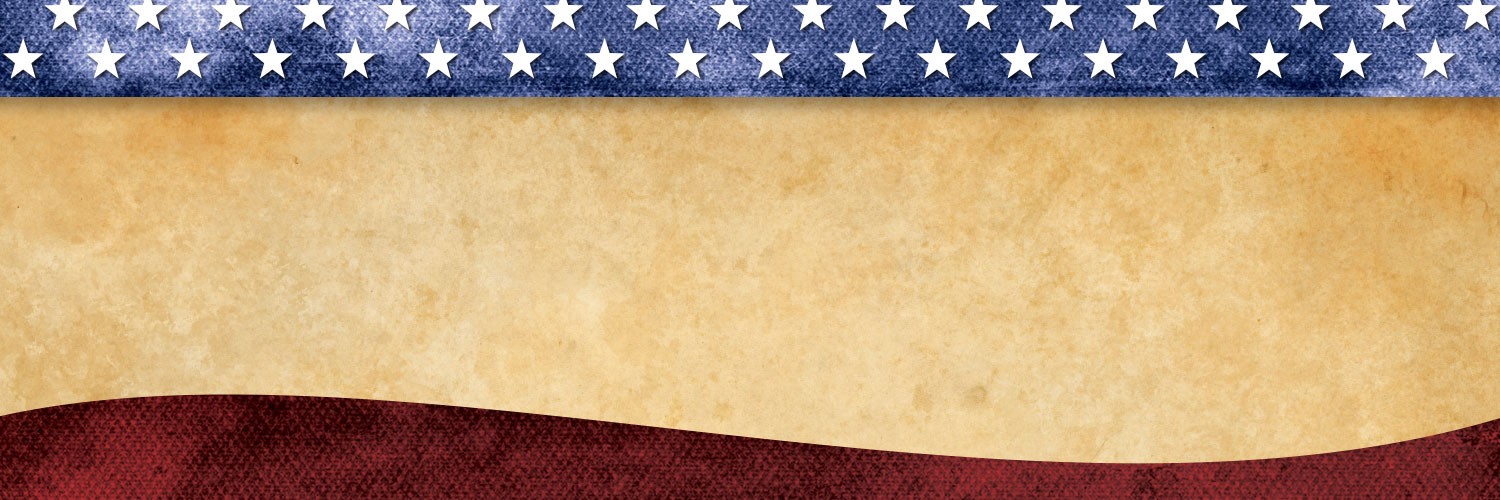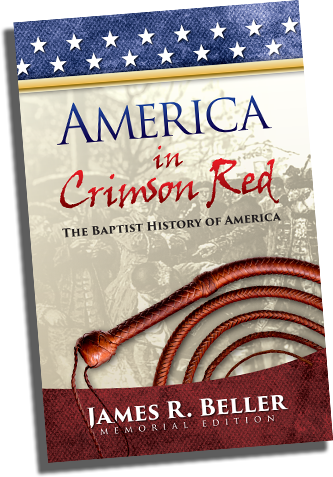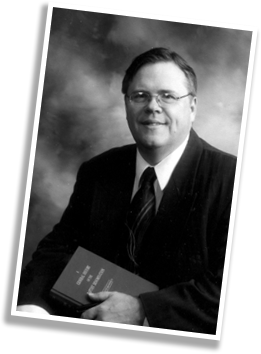An Answer to Victory Baptist Press’s Did Roger Williams Start the First Baptist Church in America?
An Answer to Victory Baptist Press’s Third Release of Did Roger Williams Start the First Baptist Church in America?
by James Beller
On or about March 3, 2011, Jim Fellure of the Victory Baptist Press of Milton, Flordia sent a letter to 15,000 email recipients entitled, An Open Letter To Those Who have Questioned Our Stand On The Baptist Bride, Lankmarkism, or Baptist Church Succession Theory. The initial letter was four pages long and consisted of a report of problems Bro. Fellure encountered in an attempt to raise funds for the press. The problems centered around prints of a photo of the alleged first Baptist church in America, First Baptist of Providence, Rhode Island. Seems Victory Baptist Press (VBP) wanted to sell the prints to raise funds, but they met with some resistance. It seems that a large number of Independent Baptists doubt that First “Baptist” church of Providence, R.I., was the first church of the Baptists in America. Therefore, not a lot of prints sold. So VBP, through the pen of Bro. Fellure, felt it necessary to correct this frustrating situation. Since my name was mentioned in the first version of this release and I was described as a “Landmarker,” and a “Baprist Brider,” I felt constrained to answer some of the allegations of VBP. I will use the third version of the release to answer. There are four versions of this letter so far, I will answer the third version.
Firstly, let me say as I said in a short letter publish at 21tnt.com on March 13, 2011, that I mean no disrespect to Bro. Fellure. I know him to be a tremendous man and a very sincere servant of God. I am truly sorry if somehow I have hindered him through my writings or research.
Secondly, I studied the history of the Baptists for nearly seven years before I released the book, “America in Crimson Red.” It took 7 years of study and 5 years of writing to finish. I certainly don’t expect everyone to believe all of my findings, but I assure you, everything that I say is documented. As an ex-Roman Catholic, held in chains to Rome for the first 17 years of my life, I do not come to conclusions in my research lightly, knowing how easy the printed page can deceive.
I entered into historical studies with absolutely zero bias. I, like most young men who attended Bible college, graduated with no knowledge of my Baptist fore-fathers—none. I had no prejudices because there was nothing taught. So as I studied, I was a blank page. After the release of America in Crimson Red, I was accused of being a “Landmarker,” or a “Brider,” just as VBP accused me in the first release, but I was neither. Facts are just what they are.
A major problem with the letter/booklet Did Roger Williams Start the First Baptist Church in America? is the mixing of arguments. Is VBP simply arguing for time difference? Did Roger Williams start before John Clarke? Or is this an argument of legitimacy? Was the baptism of Roger Williams illegitimate, making him ineligible to start a church? Is this an argument over church secession, or are we also going to argue about the universal church? Do we need to define “Landmarkism?” Do we need to define “Baptist Bride” beliefs? I would like to discuss church secession, the universal church, Landmarkism, etc., but not in this present arena. We know we have to address these matters, but we believe we ought to keep this present discussion focused on the first Baptist church in America and this we will do if God permit.
Thirdly, what I aim to do is quote from the third release of the letter/booklet and answer VBP directly:
1. The third release of the letter/booklet begins by informing the reader of the financial pressures currently experienced by VBP. We all can identify with this problem as the current economic downturn has caused every ministry in the country to suffer. The letter/booklet goes on to explain an idea to raise funds for VBP: sell prints of a photo of the alleged first Baptist church in America, the First Baptist Church in Providence, Rhode Island. In fact the letter/booklet, very boldly states:
“…over a period of five or six months, I have checked dozens of books and documents by Baptist writers and secular historians and have even accessed government records. I have found, without a doubt, that in 1638, Roger Williams started the First Baptist Church in America at Providence, Rhode Island.”
I want to point out the author’s phrase, without a doubt, because historically nothing could be further from the truth. The claim that Williams’s church is the first, or if Williams started a church at all, has been in doubt for quite some time. It is still a swirling controversy. It is a confusing subject because Williams repudiated his own baptism and walked away from the church. Some say the church “dissolved” or “came to nothing.” David Benedict sums up the controversy in his 1848 edition of the History of the Baptists on page 443:
“The more I study on this subject the more I am unsettled and confused. As to his retiring soon from the pastoral office there can be no dispute, but whether this was on account of the burden of public duties or from embarrassments in his feelings is a point by no means clear. It is a singular fact that in all his writings which have survived the waste of time controversial or epistolary no reference is made to this subject. Through all his life he showed no signs of heresy or schism but always appears the same orthodox and pious man, and this character has been universally ascribed to him by all candid writers who have made mention of his name. It has been said that he joined with the Seekers, became dissatisfied with all church organizations with his lay baptism &c and waited for the revival of a new and apostolical order of things.”
But how can we dismiss the testimony of John Comer, considered the first Baptist historian in American history? According to eyewitnesses to his historical papers, historian Edward Peterson, author of the History of Rhode Island, (John S. Taylor, publisher, 1853) on page 332, writes:
“The First Baptist Church in Providence has assumed two points which she is unable to maintain: First, her existence being prior to that of the church at Newport; secondly, that the church was founded by Roger Williams. Comer, the first, and for the early history of our denomination, the most reliable of writers, ascribes distinctly and repeatedly this priority to the Newport church. He (Comer) had formed the design, more than a hundred and twenty years ago, of writing the history of the American Baptists, and in that work which he only lived to commence, but which embraces an account of this church, he says in one place that it is the first of the Baptist denomination; and closing his history of it, he says: ‘Thus I have briefly given some account of the settlement and progress of the First Baptist church on Rhode Island, in New-England, and the first in America.’” (See Making of America Books online.)
Or shall we dismiss the testimony of John Callender, the second Baptist historian in American history and the sixth pastor of the First Baptist church in Newport, beginning his ministry in 1730? He made this footnote in his Historical Discourse of 1738, on page 56:
“Since this was transcribed for the Press, I find some Reasons to suspect, that Mr. Williams did not form a Church of the Anabaptists, and that he never join’d with the Baptist Church there. Only, that he allowed [believed] them to be nearest the Scripture Rule, and true primitive Practice, as to the Mode and Subject of Baptism. But that he himself waited for new Apostles, etc. The most ancient inhabitants now alive, some of them above eighty Years old, who personally knew Mr. Williams, and were well acquainted with many of the original Settlers, never heard that Mr. Williams formed the Baptist Church there, but always understood that Mr. Browne, Mr. Wickenden, Mr. Dexter, Mr. Olney, Mr. Tillingast, etc, were the first Founders of that Church.”
I hasten to say VBP has every right to try to better its financial situation, I hope they can, because they do a good work, and they proposed this in the first and second versions of the letter/booklet:
“We advertised the picture (of First Baptist, Providence) in the bimonthly VBP Newsletter for January/February, 2011, as representing the most strategic landmark of Baptist history and freedom of religion in America and put it on our online bookstore at a price that was $65 below the appraisal value.”
However the idea was not well received:
“Immediately, criticism and ‘reproof’ started. I have received numerous emails and letters informing me that Roger Williams did not start the first Baptist church in America.”
2. Next, the letter brings up the apparently “alien” baptism of Roger Williams:
“The critics claim even though Williams embraced Baptist doctrine and was baptized by immersion, he was not baptized by a qualified person; therefore, he was not qualified to start a
Baptist church.”
What the letter/booklet is referring to is the historical fact that Ezekiel Holliman “baptized” Roger Williams and then Williams baptized the other ten that were gathered. Isaac Backus refers to this in his History of New England Baptists, Vol. 1, p. 86:
“We are now come to an event which has made much noise in the world, I mean Mr. Williams’ baptism…one in the community was first appointed to baptize him and then he baptized the rest.”
There is still a lot of noise about this. I suppose the best way to think of this would be in a contemporary setting: Would any Baptist Christian think it decent and in order for an unbaptized person to baptize another? The ultimate exception to this rule of practice would be John the Baptist. Would we today claim that an unbaptized person could start a New Testament church? One might argue for self-baptism perhaps if there is no alternative, Backus argued this, as did John Spilsbury. However, Roger Williams had John Clarke in the same colony, or even Hanserd Knollys not far from him, either of whom could have administered baptism.
3. The letter/booklet of VBP now switches gears and opens a discussion on the Baptist Bride position. The letter/booklet states:
“The following quote is taken, word for word, from the doctrinal statement of a very reputable
and prominent Baptist Church: ‘The bride will be made up of the faithful members of the Lord’s New Testament Baptist Churches. There are others that will be saved but the bride of Christ is
the chosen of the elect. Others will be guests at this great wedding.’”
I wish we could have the name of the church that believes the above, no reference is cited. Only a few Baptists believe the above, I certainly do not. It is the “Baptist Bride” position, but if you believe this, I would not break fellowship with you.
4. At the bottom of page 3 of the letter/booklet, it is stated, “In 1644, Dr. John Clarke started the First Baptist Church of Newport, located just forty miles south of Providence.” This is the heart of the matter. The date of 1644 is not universally accepted. It is a date supposed by Isaac Backus. In fact Backus says, in his unabridged History of New England, with Particular Reference to the Baptists, Vol. 1 page 123, “about the year 1644.” He uses the term “about” because the date has always been in controversy. James W. Willmarth, in his supplementary notes in John Comer’s Diary (Providence: Published by the Rhode Island Historical Society, Edited by C. Edwin Barrows, D. D., 1893), on page 125 writes:
“The organization of the First Church was effected probably early in 1638, the year of the settlement of the colony. Mr. Clarke began his ministry as soon as the colonists arrived. John Winthrop, the governor of Massachusetts, assures us of this fact in a written statement made that very year; in 1638 he affirmed that Mr. Clarke was ‘preacher to those of the Island.’”
So the date of 1638 for John Clarke’s church at Newport is asserted by John Winthrop. The date of John Clarke’s Newport church is also confirmed as 1638 by John Callender, the second Baptist historian in America, writing in his Historical Discourse on the Civil and Religious Affairs of Rhode Island (Boston: Kneeland and Green, 1734), P. 62:
“The people who came to Rhode-Island, who were Puritans of the highest Form, had desired and depended on the Assistance of Mr. Wheelwright, a famous Congregational Minister aforementioned. But he chose to go to Long-Island, where he continued some Years. In the mean Time Mr. John Clark, who was a Man of Letters, carried on a publick Worship at the first coming.
Which means the church founding was at least 1638, the year John Clarke and the opinionists landed in Rhode Island. What these dates have to do with Landmarkism is beyond the pail of my understanding. They are simply facts.
5. On page 4 of the third version of the letter/booklet from VBP is found this statement: “…the Landmark Theory people claim his church was the First Baptist Church in America, and they reject Roger Williams as even being a Baptist.”
I am not sure what the “Landmark theory people” claim about Roger Williams. However, it is Roger Williams himself that rejected “even being a Baptist.” Roger Williams’s repudiation of his own baptism is one of the least controversial facts of this entire period. According to Isaac Backus, in An Abridgement of the Church History of New England (1804, reprint ed., Harvard: Harvard Library, 1935), on page 45 Backus states: “In March, 1639, he was baptized by one of his brethren, and then he baptized about ten more.” Williams then abandoned “such administrations among them.”
6. On page 4-7 of the letter/booklet by VBP, Bro. Fellure begins a discussion on the universal church theory and the meaning of passages in Romans 12 and I Corinthians 12 neither of which we will presently address. He then addresses the “Baptist Bride” issue on page 6 and informs us that the Protestants are also in the bride. Again, these things need to be addressed but it is not our present concern. “Landmark” or “Bride” positions are irrelevant to the timetable of John Clarke and Roger Williams.
On page 7, the VBP letter/booklet states:
“Historically, there are no records of churches that taught and practiced Baptist doctrine and principles that were linked to each other without a break in the chain all the way back to Christ.”
Well, pardon me, but if Baptist doctrine is Bible doctrine, and the Bible scriptures “cannot be broken” then Baptist people and their churches should exist throughout the ages just as Ephesians 3:21 says “ Unto him be glory in the church by Christ Jesus throughout all ages, world without end. Amen.” This is Biblical science, and I care not what VBP or any other opinion suggests. I doubt seriously that we can find man-made pieces of paper to trace these people, but the Bible indicates “the church” (of which each individual congregation is a representative, containing its distinctive teachings and practice), would exist throughout all ages. This line of “church” isn’t the Roman Catholic institution. Believing in this is sometimes called “principled succession,” and a whole slew of present-day Baptists count it true. Why? Because it is Biblical not historical. Yea, on page 8 of the VBP letter/booklet it is stated:
“Another popular analogy is that if you find some churches in the New Testament believing and practicing certain truths, and you find churches today believing and practicing those same truths, you can conclude that the later are descendants of the first through New Testament Baptist Church Succession, linked by water baptism, administered by a “qualified” person. However, genealogies are not supported by similarities, but by names. A Smith begets a Smith (or whatever the name may be), and there are no “Baptist” churches in the Bible to beget other Baptist churches. There are no spiritual genes passed down to a Baptist church through baptism that will cause that church to believe or behave in any certain way, regardless of who administered the baptism.”
The above criticism is on shaky ground, because “principled succession” has never been argued on the grounds of the name “Baptist.” (although it does occur more often than most realize) but rather the grounds of Biblical principles.
7. In an attempt to correct some of the errors of the first release of the letter/booklet, page 8 states:
“Historically, the only records of continuous links of the Baptist church in America I have found, are through conventions, associations, fellowships, etc. For example, the American Baptist Convention (ABC) traces its history back through the Northern Baptist Convention and the Triennial Convention, and finally to the First Baptist Church in America started by Roger Williams in Providence, Rhode Island, in 1638. In 1845, in Augusta, Georgia, a group of Christian men who disagreed with some practices of the Triennial Convention, separated from them and formed the Southern Baptist Convention (SBC). In 1932, another group separated from the ABC and formed the General Association of Regular Baptist Churches (GARBC). In 1905, a group of men in Arkansas, organized the Landmark movement…”
Although this third release of the letter/booklet tries to patch some of the errors in history given in the first two releases, there are still grievous errors in the above quote. We answer:
a) Does the writer of this letter/booklet believe conventions, associations and fellowships plant churches? No, once upon a time, churches planted churches. Yes sometimes those Baptist churches “associated” with each other, but each individual church followed the New Testament pattern; they planted churches from their existing churches.
b) The Triennial Convention was a very loose fellowship of Baptist churches which met yearly to discuss controversial subjects and encourage church planting and missions. They were from all over America and their churches were from several different streams, not just the church in Providence, R.I. . As we chronicled in America in Crimson Red, there were several “streams” from which the Baptists sprang in America. Here are a few examples:
1. The Baptist Church at Newport (Dr. John Clarke) were Englishmen who planted 5 of the first 7 churches in America. It planted the first Baptist church in Connecticut under the leadership of Valentine Wightman.
2. The Baptist Church at Swansey, R. I. (John Miles) This church came from Wales and was a prolific mother of many churches.
3. The first five churches of the Philadelphia Association were from England, Ireland and Wales. They planted scores of churches.
4. Shubal Stearns and the Separate Baptists. Stearns was converted in New England, and was baptized by Wait Palmer, who came from the group of churches started by the Newport church. Stearns and the Separate Baptists inundated the South with the Gospel and started 1,000 churches. Any Southern Baptist historian will testify that the SBC has its roots in the Separate Baptist revival and point back to Shubal Stearns. Most Independent Baptists in the South come from this stream.
5. The Baptist church at Charleston, S.C. came from the Baptist church in Boston, Mass. begun by Thomas Gould. The Charleston church was a great mother of churches.
c) The Southern Baptist convention formed because of the slavery issue in 1845.
The mistaken historic link is made again by VBP at the bottom of page 9 in the letter/booklet:
“The Baptist Bible Fellowship, the Bible Baptist Fellowship, the World Baptist Fellowship, and the Independent Baptist Fellowship International can all trace their history back to Dr. J. Frank Norris, an ordained Southern Baptist pastor who left the SBC and promoted and influenced the independent, fundamental, Baptist movement. Men such as Dr. John R. Rice, Dr. Jack Hyles, Dr. Lee Roberson, Dr. Harold Sightler, Dr. Shelton Smith, Lester Roloff, and many others had their roots in the Southern Baptist Convention, and the Southern Baptist Convention has its roots in the Triennial Convention from which came the Northern Baptist Convention and the American Baptist Convention, which are all linked back to Roger Williams and the First Baptist Church in America.”.
To make all these streams flow back from the church in Providence, R.I. is ridiculous.
8. On page 10 of the letter/booklet, is this statement:
“If Landmarkism or the Baptist Church Succession theory were true, and the link went back through Dr. John Clarke and finally back to John the Baptist, then not one of the pastors mentioned previously, or the converts who were saved and baptized under their ministry, are legitimate Baptists, and none of them will be in the Bride of Christ.”
I know of no one that believes what VBP has stated here and I challenge VBP to show me one Baptist preacher that believes such a thing. I surely do not. It was insinuated in the first release of this letter/booklet that I do believe this and I do not.
9. On page 11, we find this:
“Right away after we advertised the picture of the First Baptist Church in America in Providence, Rhode Island, which was started by Roger Williams in 1638, Baptist preachers began emailing me and saying Dr. John Clarke started the First Baptist Church in America.”
And why was the picture met with opposition? Because a large number of independent Baptists have become re-acquainted with their heritage. Our book, America in Crimson Red played a large part in that resurgence. And no, I was not “passionate about the Baptist bride position” when I did my study.
10. On page 12, the letter/booklet states:
“Many Baptist preachers in our day who say Dr. John Clarke started the First Baptist Church in America, claim he did it in 1638, and some give the date as early as 1637. According to many records of history, Dr. John Clarke and a group of his followers left Boston in 1638, but they did not start a Baptist church; they established a new colony and drew up a compact…”
VBP might believe this but the early historians certainly knew Dr. Clarke and his followers established a church immediately. (Or was it already established?) I refer to number 4 above, namely, James Willmarth, John Comer, John Callendar and John Winthrop testified that Clarke began immediately. But I think the actions of the Warren Association of Rhode Island, ought to hold the highest regard in this matter. In 1847, the controversy of the first Baptist church in Rhode Island and America was brought before the association. A booklet was published with the findings of the Warren Association about the controversy of the year of the beginning of John Clarke’s Newport church. Asa Hildreth, at the conclusion of the booklet, The First Church in Providence not the Oldest Baptist Chruch in America, (Texarkana: Baptist Sunday School Committee, 1939). wrote the following:
“The matter of the formation of the First Baptist Church was brought before the Warren Association at its meeting in 1847, and at the annual meeting of the association in 1848 the following votes were passed by that body:
First—That the date of 1638, inserted under the name of the First Baptist Church in Newport, contained in the tabular estimate in the minutes of last year, be stricken out and the date (1644) be inserted, as in the minutes of the years preceding.
Second—That a committee, consisting of T. C. Jameson, J. P. Tustin, and Levi Hale, be appointed to inquire into the evidence as to the date of the First Baptist Church in Newport, with instructions to report at the next session of the association.
This committee reported in 1849, that they are of the opinion that this church was formed certainly before the 1st of May, 1639, and probably on the 7th of March, 1638.”
11. On page 13, there is a fairly well written defense of John Clarke’s 1638 starting date which VBP dismisses with these words:
“The record is clear. Dr. Clarke and his followers did start a new colony, and there are references made by other writers about a church in this colony where Dr. Clarke preached, but out of all the books and documents I have read, I have not found one historical record stating Dr. John Clarke started any Baptist church before 1644.”
Well, it really is clear. Winthrop, Comer, Callendar and the Warren Association are very clear. Clarke’s church began in 1638 or earlier. You can choose to believe them or not.
Why is this important at all?
It is admitted by all that Roger Williams was baptized by Ezekiel Holliman, then Williams baptized 10 others. It is also admitted by all that Williams walked away from this flock sometime afterward. What was left of that group was either continued or re-organized by Chad Browne, Pardon Tillinghast, Dexter, and Wickendon. Thomas Olney was the pastor. There was a split. The old church continued under Olney. Wickenden, Dexter and Browne began anew. The old Olney church disbanded according to Callender’s discourse on page 61. It was many years before the splintered church in Providence ever produced another church. In the mean time, the Newport congregation became a lighthouse and a church planting church. It is to the church at Newport, we should look for our pattern. The Wickenden, Dexter and Browne congregation lived on as the First Baptist Church of Providence. And yes it did eventually begin to reach some of its potential.
12. The letter/booklet pages 13-18 give references crediting Roger Williams’ s church, the one that according to John Callendar disbanded, as the first Baptist church in America. There is no new evidence cited, the historians are simply relying on Isaac Backus for their information. The truth is, Mr. Backus makes a startling admission about the Providence church, on page 285 of volume 1 of his History of the New England Baptists writing that “no regular records before 1770 can now be found.” I appreciate Backus’ candor. This simply means Comer and Callendar give the only written records. It also means Backus is relying upon oral history coupled with the accounts of Winthrop. As much as I admire Backus, Mr. Backus simply refuses to believe Callendar or Comer, whose papers he held in his hand. I will leave it to other researchers to answer why.
What we have is an assumption by Isaac Backus, with Benedict, Armitage, etc., following suit. The testimony of those closest to the situation: John Winthrop , John Comer, John Callendar and the Warren Association should take precedence.
I rest my case, but let me tell you why this is important: the testimony of John Clarke ought to be upheld because his modal of preaching, practice, and church planting ought to studied and copied.
James Beller
That unworthy servant of Arnold, Missouri.
© 2011 Prairie Fire Press, 21tnt.com









